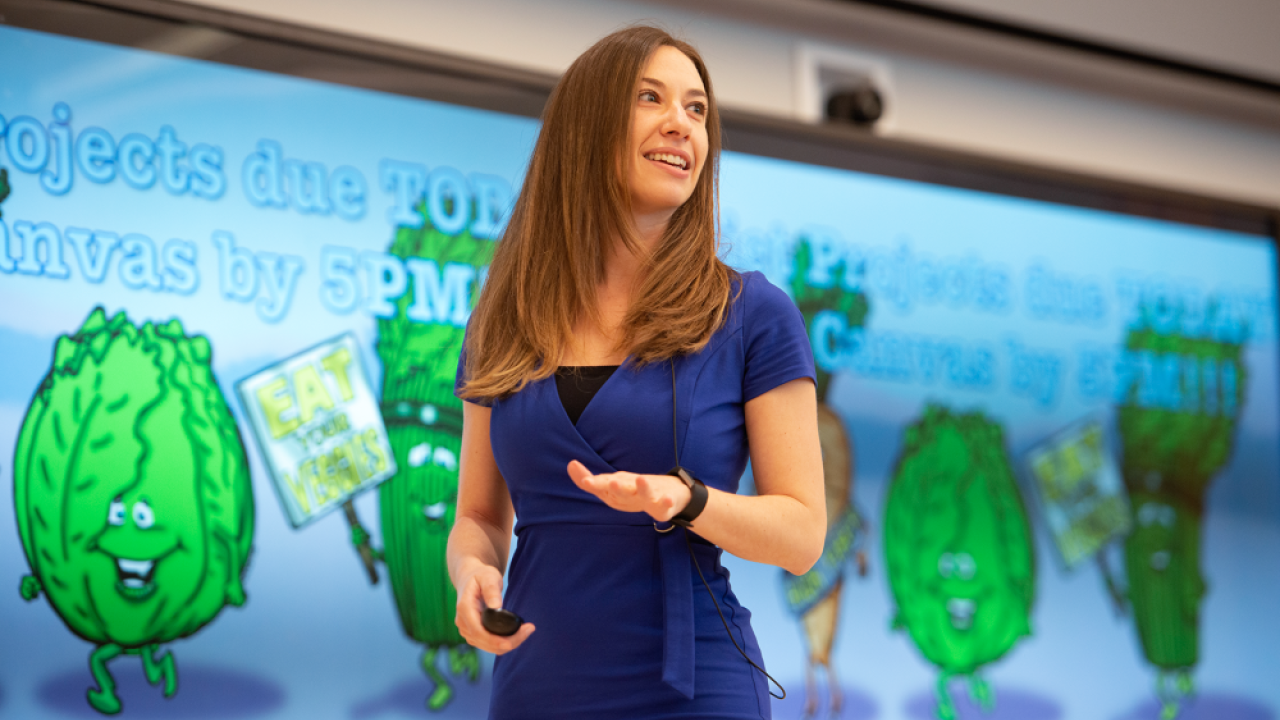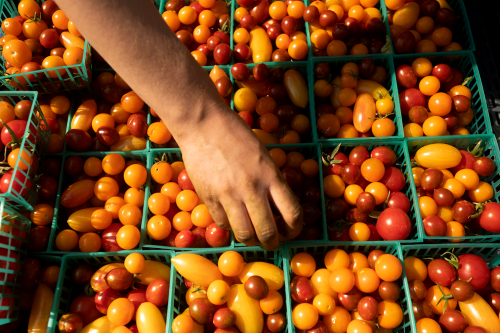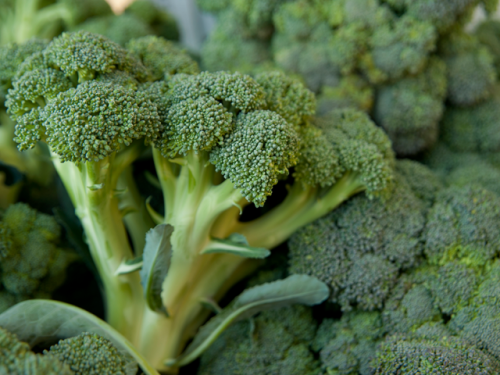
A Healthy Routine That Lasts
Build Habits One Small Change at a Time
It’s mid-February and many New Year’s resolutions have already fizzled out, with research suggesting that about 80% don’t last past this point. Debbie Fetter, associate professor of teaching with the UC Davis Department of Nutrition, shares some practical tips to help make healthy habits last all year long. Fetter, who teaches the NUT 10 course, earned her Ph.D. in nutritional biology from UC Davis and provides strategies to help make healthy eating and exercise fun and sustainable.
What are some realistic and sustainable goals to improve diet and exercise habits?
Something that I teach in my class is start smaller than you think when it comes to setting realistic and sustainable goals. I recommend creating a list of all the things that could be personally meaningful that you want to work on in terms of your health. Maybe it's something with dietary habits, maybe it's something with physical activity. Look at your list and identify your top three priorities and from those, narrow it down to your number one. I always recommend working on just one small thing at a time because you want to build it into a habit and have it become part of your lifestyle. A lot of times we tend to come up with these really lofty, big goals and it can be really difficult. Simple changes go a long way.

I recommend positive reinforcement goals that let you build rather than the more restrictive ones like, ‘I'm going to avoid all added sugar,’ or ‘I'm not going to allow myself to have any dessert.’ With these small goals, give yourself some built-in flexibility and build up from there. Maybe you go walking for ten minutes a day for three days a week, and once it becomes part of your routine you go up to four days a week or you increase it to 15-minute walks. I also love simple swaps. For example, I love pasta. But instead of having refined pasta all the time, swap it out for 100% whole wheat pasta and then you're adding in extra fiber and nutrients. I'm a big fan when it comes to dietary changes of adding instead of removing. For example, add a serving of veggies to dinner for three days of the week instead of removing something.
I also teach students how to structure their goals using the SMART framework, which is specific, measurable, achievable, relevant, time bound. This framework helps you create more structure. So rather than something like, ‘I want to lose weight,’ you give yourself a roadmap for how to work on your goal and then it's something that you can actually measure and track along the way. I also encourage people to not focus on outcomes like weight or body composition, but on the different types of habits that can help you create a more healthful body composition.
What are some simple changes people can make to their daily routines to eat healthier without feeling overwhelmed?
I think it's definitely going to depend on the person's own lifestyle. As an example, maybe you find that you're feeling rushed in the morning, and you don't have time to eat breakfast and then you end up feeling overly hungry for lunch. One simple change could be packing a breakfast the night before so that you have something to eat on-the-go in the morning, so you feel satiated and don't end up overeating or picking something that may not be the most nutritious because you're feeling super ‘hangry’ later on in the day. Start with just focusing on that one thing, seeing if it's reasonable to become part of your lifestyle to create it into a habit, and then you don't even have to think twice.
What’s your advice for handling late-night cravings or stress eating, especially during finals?

I think something that many of us could struggle with is making sure that we're feeling well-nourished throughout the day. So, making sure that we are sticking with regular meals, especially during these stressful busy times. The key is taking some time to plan before those especially busy weeks, like midterm season and finals week. We can do this by making sure that we have groceries and potentially meal prep, plus I recommend taking some shortcuts for yourself during these busy times. Opting to purchase a pre-packaged salad, wrap or a sandwich, or pre-chopped veggies, and making sure that you have healthy snacks on hand. I highly recommend protein-rich snacks to keep your satiated, things like nuts, jerky (if you eat animal source foods), or hummus and veggies are great options. If you do find yourself hungry before bed, I always recommend something protein-rich because research suggests it can help with your sleep quality and muscle repair/recovery. A hard-boiled egg right before bed is a great protein-rich snack, but you can find something that works well for you.
What are some fun activities families (or friends) can do together to stay active and motivated?
Part of the reason why I got so interested in nutrition was my mom. She involved us in the grocery shopping and cooking, and we got to do fun cooking activities growing up. I have this vivid memory of making homemade peanut butter together. When you make it an activity, it can be really fun, but it also encourages kids to try different foods that they may not have tried before. Another consideration could be to start some type of garden. Whether it’s outside or a small indoor garden, even if it's just some herbs or something simple, what we see is that kids are more likely to try these foods when they have ownership over growing and harvesting it themselves. Also try family activities that involve staying active, like taking quick walks and maybe it becomes a tradition where the family does a quick 10- or 15-minute walk before or after dinner. Engage in different active outings if you’re physically able, when possible, like going to the park, visiting the zoo, going to a museum, or walking around in general.

Are there specific strategies for incorporating more movement or exercise into a busy schedule?
Many of us tend to think about physical activity as something that needs to be structured, or that it only counts if, ‘I go to the gym for an hour,’ or ‘I spend an hour on the Stairmaster.’ But in actuality, physical activity is incorporating any type of movement that feels good to you throughout the day. I always recommend looking for opportunities to add in more movement that you're physically able to do. Park your car a little bit farther away, so you walk a little bit more to get to the lecture hall or the grocery store. Try to take the stairs instead of the elevator, when possible. By doing this, you're adding in that quick burst of physical activity. And there's also some really neat ab exercises that you can do sitting down while you're sitting at work, in class, or in the library. It's also important to take breaks throughout the day, so if you're working on campus, consider getting together with friends or coworkers to do a 10- or 15-minute walk during the lunch break. If you're studying at the library, maybe get up for 10 minutes every hour to walk around the library setting. Walking is one of the most physically accessible movements that provides great benefits for our body. And yes, dance parties in your dorm room count as physical activity! The key is making physical activity fun for yourself.
What tips do you have for avoiding burnout when trying to maintain healthy habits all year?
The key, ultimately, with these health changes is you want this to become part of your routine, so it becomes something that you don't think about. Work on one goal at a time. And also understand that there's ebbs and flows to life too. Some days are going to seem ‘healthier’ than other days and that's a natural part of being human. Days where there's birthday cake and celebrations are also really important for our social and mental health, and we should allow ourselves to enjoy these moments rather than putting ourselves on such a restrictive diet that we can't even enjoy cake at our friend's birthday.

If you could only pick one healthy food to eat for the rest of your life, what would it be?
My answer is always pizza because you can do so many different combinations. You've got your carbs, protein, fat. Sometimes pizza gets a reputation that it’s not a very healthy food, but you can absolutely make a nutrient-dense pizza. It could be a whole wheat crust or sourdough crust. I love adding veggies. But if we're talking fruits and veggies, I'd probably say my number one veggie is broccoli and my number one fruit is cherries.
What is a healthy swap?
A common one is for someone doing a fair amount of home cooking would be opting for a healthful oil instead of using a saturated fat because we want to be mindful of our overall saturated fat consumption. Go for olive oil or avocado oil instead of something like lard or butter or coconut oil. I love swapping out refined grains and replacing them with whole grains, when possible. The recommendation is to make up at least half of your grain choices whole grains, so it's nice to have that flexibility because if you really don't like brown rice, have white rice. You don't have to do all or nothing all the time. And I always try to recommend making water your default drink of choice. You can add herbs or citrus juice to kind of spruce it up or maybe you have bubbly water. But opting for water instead of a beverage that contains empty calories would be beneficial.
What are some resources available to help our campus community stay on track with healthy eating and exercise?
- Department of Nutrition: shares health info sheets and follow @UCDNut10 on Instagram for tips and nutrition-focused myth busters.
- Healthy Aggies: clinical nutrition students offer peer nutrition counseling.
- Student Health and Counseling Services: registered dietitians provide nutrition-related help.
- Campus Recreation: offers group exercise classes and personal trainers.
- Healthy UC Davis: central hub that provides health-related resources and materials.
Media Resources
- Debbie Fetter, Department of Nutrition, dsfetter@ucdavis.edu
- Tiffany Dobbyn, College of Agricultural and Environmental Sciences, tadobbyn@ucdavis.edu
